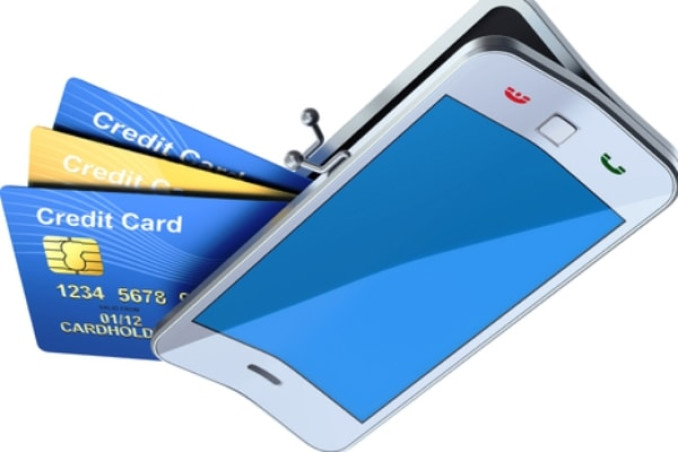World Remit, Red Cross Are in Talks to Allow Money-as-Aid Transfers

JULY 2014.
Blogs.wsj.com
A London-based mobile money transfer start-up is teaming up with aid agencies like the Red Cross to allow cash to be sent as humanitarian aid to affected areas.
World Remit Ltd enables users to send money from bank accounts via their laptops, mobiles or tablets to more than 100 destinations in 35 countries. Recipients can then receive the money as cash (which they collect or have delivered by courier), as a bank deposit, or directly into a mobile wallet.
World Remit did not comment on what form the commercial aspect of the deal with the Red Cross would take, should a deal be finalized. However, according to a person with knowledge of the discussions, the nature of the talks is focused on how money can be remitted at low cost to charitable causes.
The four-year-old company is closest in concept to fellow London money transfer services, Azimo Ltd. and Transferwise.
In March, World Remit received a $40 million investment from venture capital firm Accel Partners.
It is among the first money transfer businesses with the capability to send money to mobile wallets now in talks to develop partnerships with international aid groups. And it previously aided the Red Cross’ response to Typhoon Haiyan in the Philippines and to the Westgate Mall attack in Kenya.
After the Westgate Mall attacks in Nairobi last September, the Red Cross set up a mobile wallet account with M-Pesa, a Kenyan mobile money transfer system run by network operator Safaricom Ltd, part of the Vodafone Group VOD.LN +1.00%. This generated a local M-Pesa number that only users of Kenyan mobile networks could text in order to donate.
In partnership, World Remit allowed its users to send money instantly from international bank accounts to the Kenyan M-Pesa number of the Red Cross’ mobile wallet. The Red Cross could then cash out the money from the mobile wallet at local M-Pesa vendors.
“Technology is [being] used to make payments,” said Maite Alvarez, an economic security adviser at the Red Cross. “And it’s really exciting, there’s just so many options.”
World Remit hopes that with its existing banking connections it can enable aid organizations to send cash to needy recipients in areas that don’t have strong banking or money transfer infrastructure, or whose existing infrastructure is damaged.
A difficulty for many aid organizations is in establishing connections with local financial institutions, and the cost of moving money from their bank accounts (often located outside the region) to mobile wallets - a growing phenomenon in areas like east Africa, where mobile penetration is high and traditional bank account uptake is patchy. Such movement can typically result in the loss of up to 20% of the money being transferred.
“Aid is changing,” said Ismail Ahmed, World Remit founding CEO and a former chief compliance advisor for the UN remittance program. “Aid is now moving into giving individuals the assets, actually cash, so they use that money to do what matters to them.”
Mobile wallets are essentially applications that act as virtual bank accounts operated on a user’s phone without the need for a formal bank account. In basic mobile phones, the wallets are built into the SIM cards of participating operators and appear as extra features on activation; while on smartphones, wallets can often be downloaded as an app.
Users sign up with a mobile money service, like M-Pesa, and once their account is activated, they are able to deposit and withdraw cash by visiting local franchisees. A text is received when money has been credited to the account and money can also be moved from person-to-person by navigating a menu in the phone (basic phones) or through the app (smartphones).
In Kenya, charities like US-based GiveDirectly have been using satellite data to locate in-need beneficiaries (for example, through images showing the material a family’s hut is made from—a thatch roof means relatively less well-off). They then conduct local censuses, and arrange to send people mobile money payments.
“These kinds of direct cash transfers are actually a mainstay, a growing part of international development work,” said Paul Niehaus, president of GiveDirectly.
Furthermore, following the destruction caused by Typhoon Haiyan in the Philippines, the UN organized for cash distribution, not food distribution, to many of the people who had lost their possessions. The logic being, Mr. Ahmed noted, that this way the money will likely be used to meet needs more accurately.
“It [was] probably one of the most successful targeted systems,” said Mr. Ahmed.
World Remit considers itself less prone to the misuses that plague many cash-friendly global money-transfer systems, such as attracting senders seeking to launder money. Users of its system cannot send cash, but must have a bank account to transfer money. An ID check is also required, allowing the service to identify those who register and to track money trails.
The company also hopes that its facilitation of the process of delivering aid to personal mobile wallets will streamline international mobile aid distribution at a reduced cost, and increase the use of such technology in this field.
“These technologies, these wallets have an opportunity to actually transform the way aid is distributed,” said Mr. Ahmed.
 Africas leading resource for digital financial services
Africas leading resource for digital financial services


comments